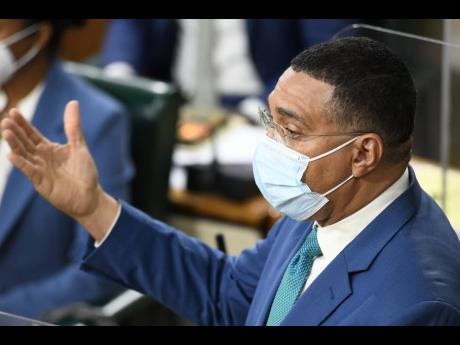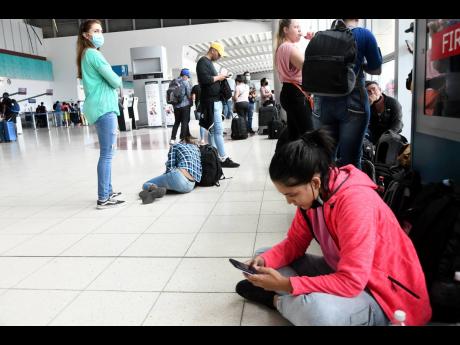PIOJ to assess impact of recent shocks to economy – PM
WESTERN BUREAU:
Prime Minister Andrew Holness says he has asked the Planning Institute of Jamaica (PIOJ) to give him an assessment of what the country’s prospects are for growth in light of recent shocks to the economy, including the industrial action in the public sector last week.
He said that there had already been revisions to the growth prospects as a result of the external shock of the geopolitical issues in Ukraine and its impact on supply chains, travel from eastern Europe, inflation, and energy.
“Now, we’re going to have to figure out what we have lost for these two days of disruption. So, I want to quickly do a study for the Cabinet so that we can be prepared, we can understand what would be the impact of an industrial shock to the economy,” Holness said on Friday while undertaking a tour of the Sangster International Airport in Montego Bay, St James.
Holness was responding to questions from the media regarding the 72-hour ultimatum by the Jamaica Civil Service Association (JCSA) to lock down the country if its concerns were not addressed; the strike by National Housing Trust and National Water Commission (NWC) workers; and the absence of air traffic controllers manning the country’s airspace on Thursday.
The JCSA has since withdrawn its threat, after meeting with the Ministry of Finance and the Public Service.
While admitting that the country’s civil servants have legitimate concerns about inclusion, transparency, and respect, the prime minister noted that that it would be unwise to disrupt an economy that was recovering from a pandemic.
AIR TRAFFIC CONTROLLERS
“This is not a shock that we need,” Holness said during a visit to the airport a day after air traffic controllers reportedly waited on AEROTEL to fix equipment deemed unsafe while some 40 flights were cancelled, leaving thousands of airline passengers stranded locally and internationally.
“I am concerned that the actions will disrupt the economy, reducing the people’s revenue, which is where the various wages and benefits and remuneration claims would have to be made,” he said, adding that there has to be an understanding that the actions in protecting the sectoral and personal interests can have a national effect that reduces the capabilities of Government to meet the claims.
“So it doesn’t make sense to disrupt the economy,” he cautioned. “We have spent 40 [years] arguing how to share up a smaller pie, an ever-decreasing pie. For the first time in a long time, the pie looks like it is about to increase, and just at that point, we are about to knock the pie off the table. It doesn’t make sense.”
Acknowledging that the unrest was not unexpected, he could not hide his disappointment that the workers are not “acting in a rational fashion”.
Holness noted that it was his Government that identified the need to reclassify, realign, readjust public-sector workers’ compensation review so they can be paid better.
“I believe we can find ways to express the concerns, deal with the issues, without disrupting everyone else’s progress,” he argued.


